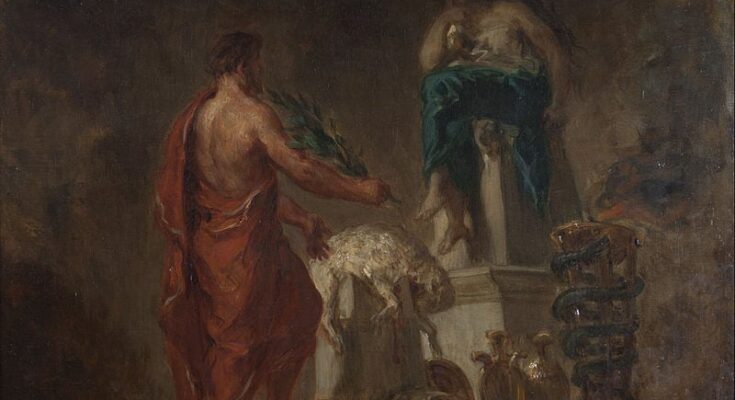
Ancient Greece had some famous priestesses who played a significant role in the religious and cultural life of the time. The Greeks had established a society that was primarily patriarchal, where women were often relegated to the domestic sphere of the ”oikos” or house.
They enjoyed limited rights and opportunities and mainly focused their lives around raising children and taking care of the house’s chores. However, there was one particular area of life where women could amass significant power and influence: religion.
As priestesses, these women of ancient Greece held positions of authority and became important figures in the religious life of their communities.
The role of priestesses in ancient Greece
Priestesses were exceptionally important figures in ancient Greece. They were responsible for overseeing the daily operations of temples, places particularly important and holy for the vast majority of the Greeks.
They were tasked with performing rituals and communicating directly with the gods on behalf of their worshippers.
This immense power made them the only women to be allowed to enter certain sacred spaces and participate in religious ceremonies, where otherwise only men would be allowed. Some of the most prominent priesthoods held by women in ancient Greece included:
- Athena Polias at Athens
- Demeter and Kore at Eleusis
- Hera at Argos
- Pythia at Delphi
These priestesses were honored and highly respected. Because of that, they also held considerable influence within their communities, affecting everything, from politics to everyday and mundane issues.
While most ordinary women in ancient Greece were limited as to what they were allowed to do and remained confined in their households, priestesses stood apart as bright and divine exceptions. They were clearly distinguished by their roles in major public temples all over the Greek world, where they held either the roles of rulers or ritual officiators.
This allowed them to gain a level of public status and respect that was uncommon for women at the time.
Because of this important role they held, priestesses in ancient Greece were therefore exempt from the strict social expectations that were normally placed on other women. This meant that they could move more freely in public without this being frowned upon.
They could interact with men outside their families, as this was part of their role in the temples. This relative freedom compared to the rest of the female population was necessary for them to carry out their religious duties effectively.
Famous priestesses in Greek mythology and history
There are several notable priestesses who appear in Greek mythology and history.
The most well-known of them all was Pythia. She was the priestess of Apollo at the sacred site of Delphi and was known for delivering oracles and prophecies. Her name became synonymous with ambiguous predictions about the future and her opinion informed decision-making from the lowest to the highest levels.
Other notable priestesses included Theano, who was a priestess of Athena, as mentioned in Homer’s Iliad, and Iphigenia.
Iphigenia was mentioned in some versions of her story as a priestess of Artemis after being saved from sacrifice.

Another notable example was Charicleia, the heroine of Heliodorus’ novel “Aethiopica.” There, Chariclea serves as a priestess of Artemis.
These examples show very eloquently how important the roles of priestesses were in both religious practice and popular imagination in ancient Greece.
In addition to the priesthoods held by individual women, religious practices in ancient Greece also included women-only festivals and rituals.
These unique events, such as the Thesmophoria that were held in honour of Demeter, provided opportunities for women other than priestesses in ancient Greece to worship, celebrate and gather together and exchange views and opinions without the interference of men, who dominated public life at that time.
The very existence of these women-only events and places shows us that despite the patriarchal nature of the society of ancient Greece, there was still a common understanding of the importance of religious experiences also being accessible to women.
Related: Priestesses Among Few Women With Status and Power in Ancient Greece



